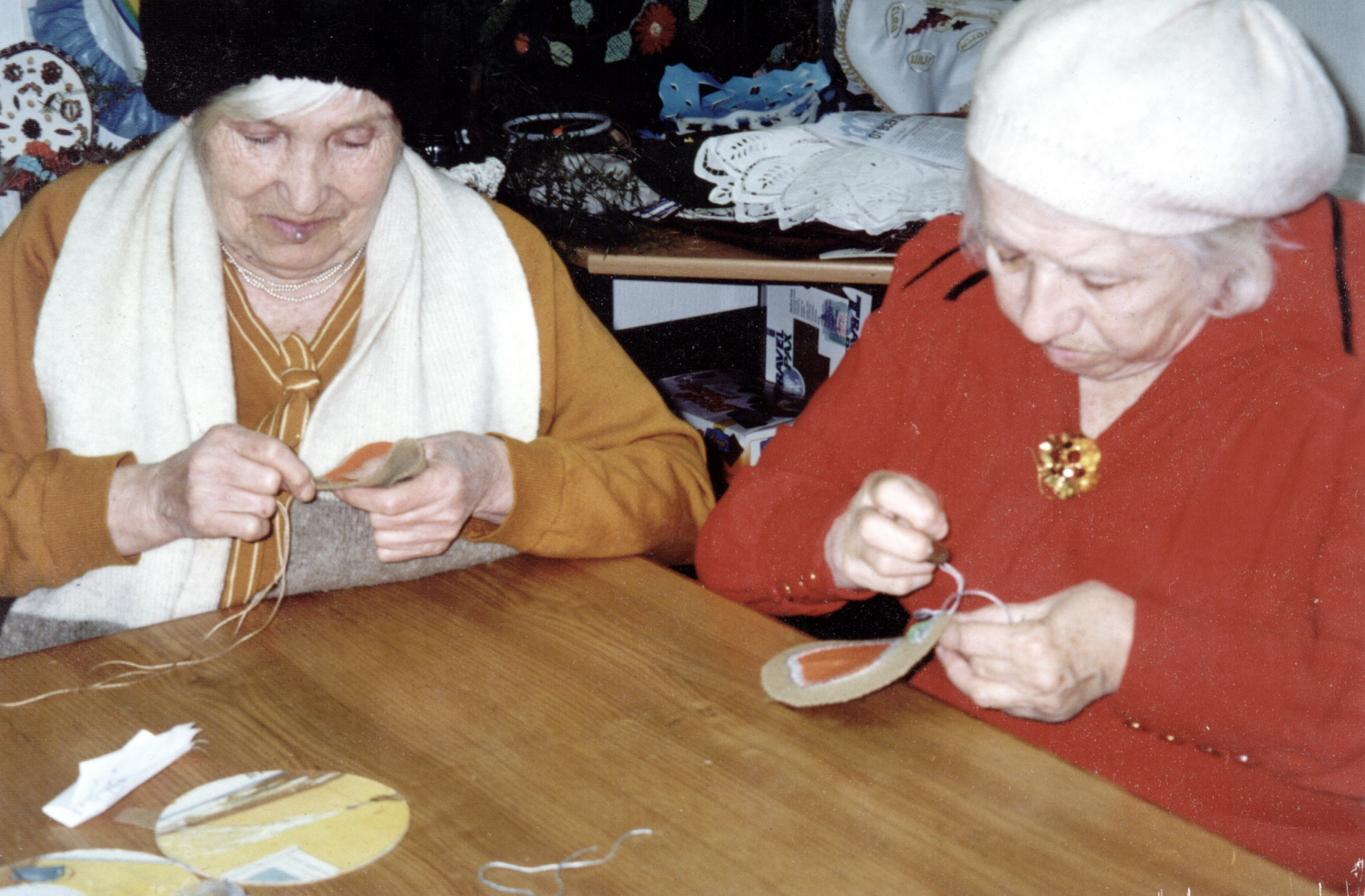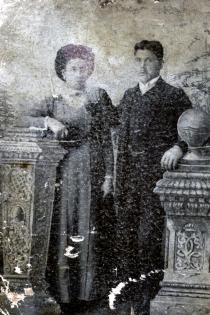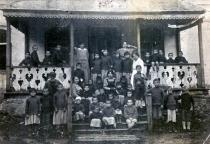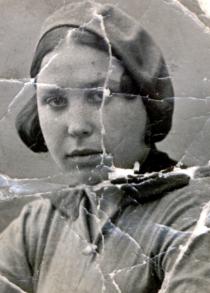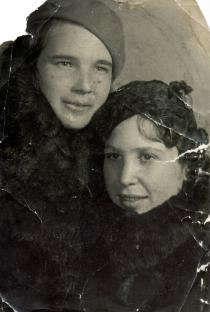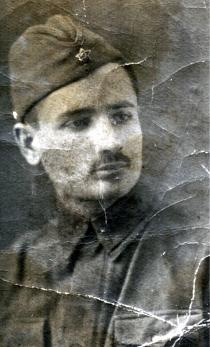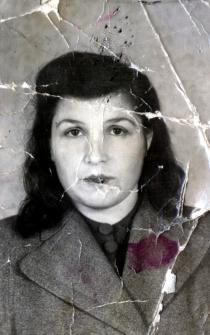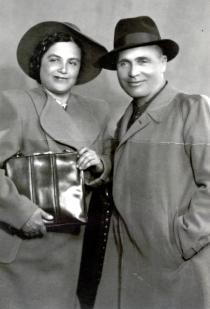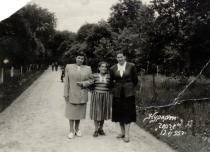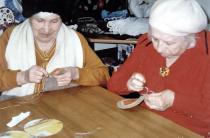This is me and my friend Sarra, photographed at a needle-work class in the Day Center of Hesed in Kiev in 2001. I am on the left wearing a white scarf.
I had a few men in my life, but I didn't want to share my life with any of them. I'm alone. I have no children. It was also due to my illness: I began to walk with a stick in the fall of 1946 when I had osseous tuberculosis. I was confined to bed for two years. I had two surgeries and was declared an invalid. I couldn't do hard work any longer and worked as an attendant in a hospital, as a janitor and, later, I made aprons at home.
However, I always tried to be cheerful. When my condition became more stable I began to attend a Ukrainian folk choir that went on tours to many towns of our country. I often went to health recreation centers on vacation. I could stay there for free. I took part in amateur art activities, liked singing, cracking jokes and playing tricks on people. I had friends and cousins that visited me when I was ill. Sometimes we spent time together. We went to the cinema, walked in parks, celebrated Soviet holidays and had parties. They had family responsibilities though and therefore I often didn't have any company. I couldn't afford going on vacation and besides my health condition didn't allow me to travel. I spent my evenings working or watching TV. I retired in 1978. I receive a minimal pension since my salary had been very low.
I never faced anti-Semitism in my life. People have always treated me nice. Of course, I read in newspapers about anti-Semitic campaigns in the late 1940s [the campaign against 'cosmopolitans'] and the early 1950s [Doctor's Plot], but they had no impact on me. When Stalin died I didn't cry like others did. I didn't care.
I received a room in a communal apartment in 1966 and that's where I still live. I've always tried to observe Jewish traditions, at least, a few of them. I couldn't celebrate Saturdays because it was a working day in our country, but I always fasted on Yom Kippur. After the war I went to the synagogue on that day. I always had matzah on Pesach and I celebrated this holiday with my cousins Olte and Rachil.
Many of my relatives moved to Israel and US. If I hadn't been an invalid I would have moved there, too. I've always been attracted by Israel. I believe this is our common motherland.
Perestroika turned out to be a severe trial for me, just like for many other lonely pensioners. We get miserable pensions, just enough to buy bread and milk. However, there are positive signs, too. I think it's good that the Jewish way of life has revived in Ukraine. Hesed provides great assistance to me. They take care of me. It's not just words; Hesed doesn't only mean material support - kind words and information about Jewish cultural life are equally important. We are involved in various activities related to Jewish customs and traditions. I used to attend meetings for elderly people at Hesed daytime center. Two years ago I fell and had a fractured neck of femur. Hesed came to help me. Visiting nurses from Hesed helped me to survive and begin to move. I can only move in my room with the crutches, but I'm alive and I want to live on. That's all that matters.
